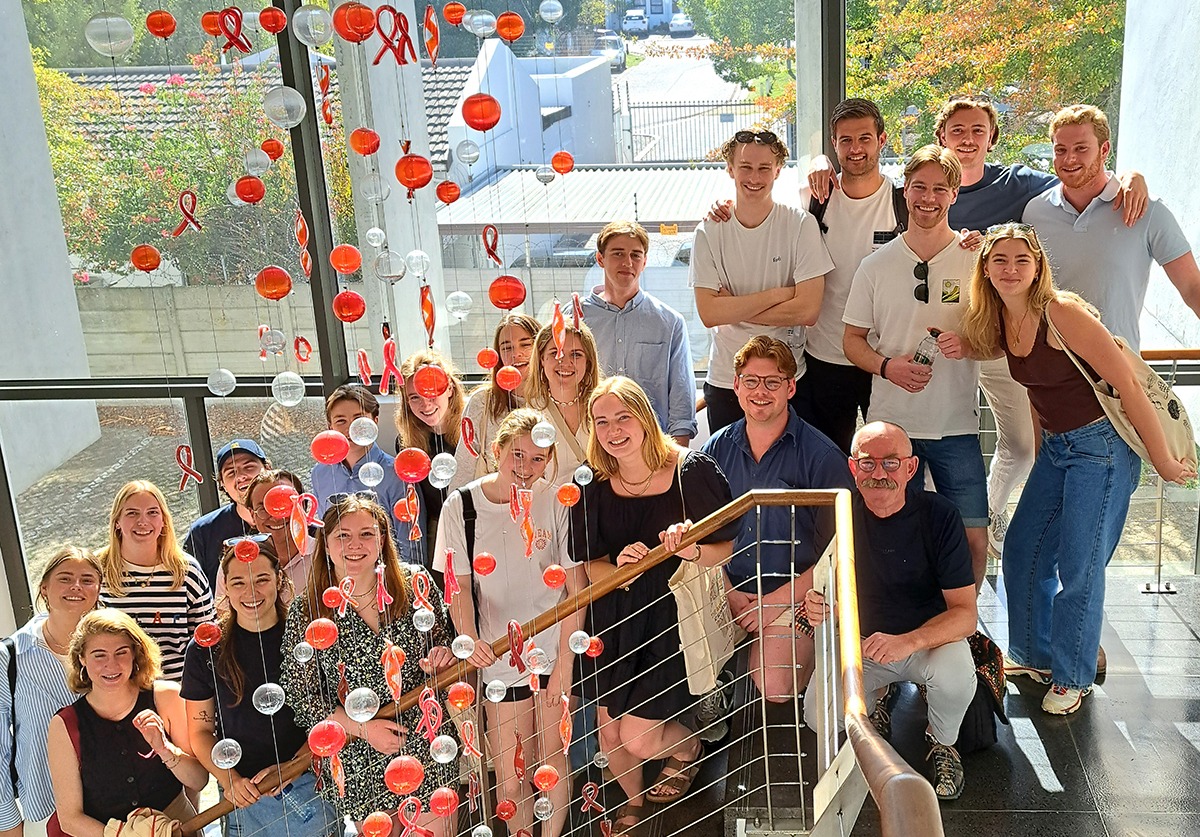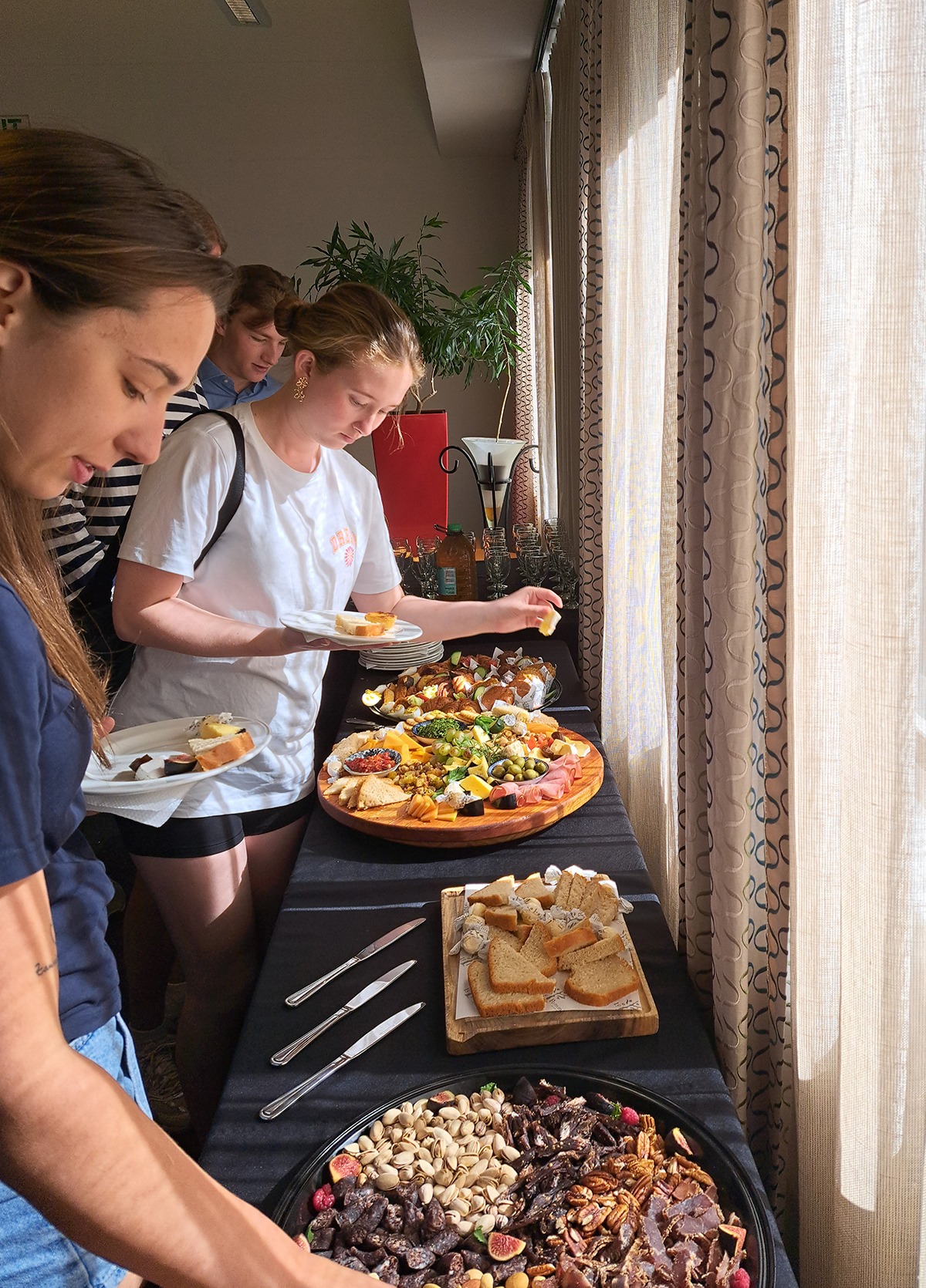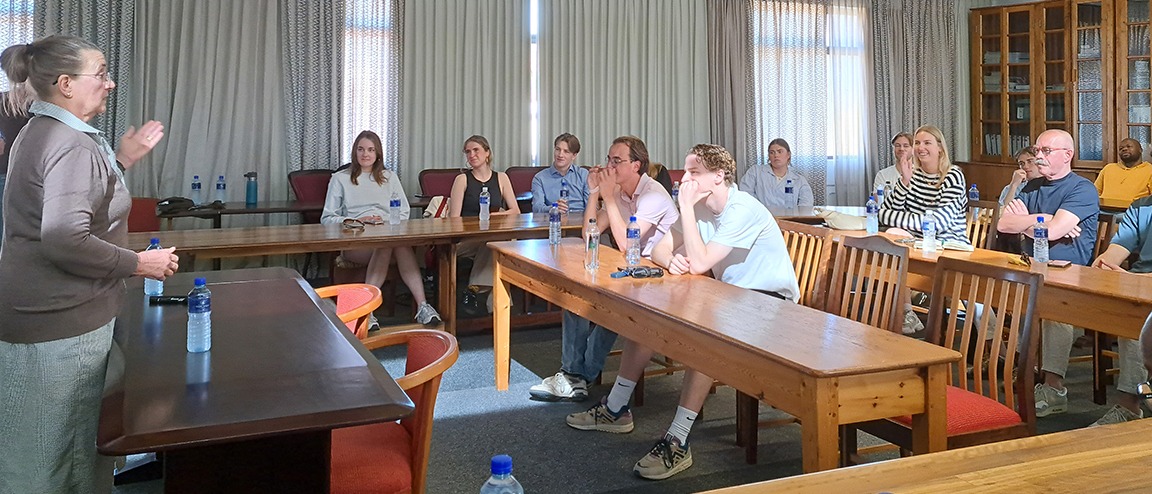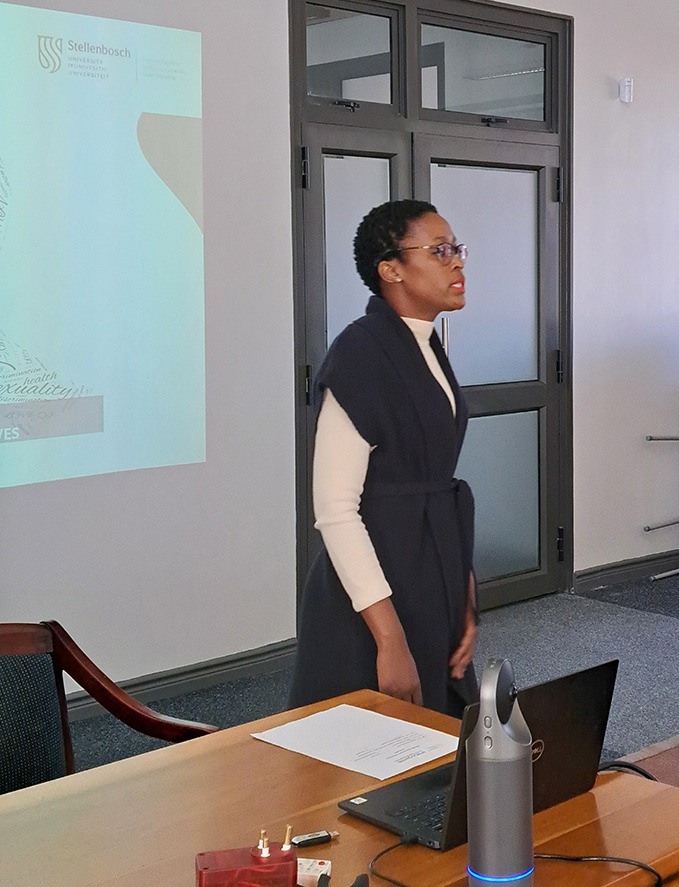

Students from the Faculty of Business and Economics at Groningen University visited the Africa Centre to gain insights into how HIV/Aids affects the business environment in South Africa, including the daily lives of employees, business practices and issues such as stigma.
On 15 May, a group of 22 students and Prof Bartjan Pennink from the Faculty of Business and Economics at Rijksuniversiteit Groningen in the Netherlands visited the Africa Centre for HIV/Aids Management to gain a better understanding of how HIV/Aids affects the South African business environment. This ties in with their research on social entrepreneurship in South Africa, for which they have been working with the Small Business Academy at Stellenbosch University. SU and Groningen University have been in a collaborative partnership since 2020, with a shared commitment to international education, research and innovation.
With its high HIV prevalence, South Africa is an important case study for the impact of the epidemic on the world of work. Considering that businesses and their personnel operate and live in broader community contexts, the Africa Centre invited experts in HIV/Aids management in the community, on campus and in the workplace to provide the Groningen students with a comprehensive view of the status and practical implications of the epidemic on various facets of South African society. This is in line with the centre’s cross-disciplinary approach to managing the impact of HIV/Aids and other epidemics or pandemics.
For first-hand insights into the impact of HIV/Aids on a ground level, students had the opportunity to listen to Lynette Rademeyer-Bosman, an Africa Centre alumnus with over 30 years’ experience in designing HIV/Aids programmes. She is the executive director of the Stellenbosch-based NPO @Heart, which provides HIV/Aids and TB testing and counselling services. “HIV/Aids programmes have to look at all developmental aspects of HIV and the challenges that infected individuals face, including spiritual, emotional, occupational, social, physical, sexual and intellectual,” she explained.
Tying back to the Groningen students’ interest in the impact of HIV on the world of work, Rademeyer-Bosman emphasised that the aim is ultimately to enable HIV-positive people to play a role in the economy. HIV programmes built on this optimal wellness model are more likely to have an impact. Collaboration is a vital part of this: “To ensure that people know where to go for related issues such as substance abuse and gender-based violence, organisations must be able to make appropriate referrals and collaborate.”
Rademeyer-Bosman also highlighted the need to get personal. The lack of personal engagement possibly plays a role in the concerning statistic that 2 of the 8 million HIV-positive people in South Africa are not on antiretrovirals and that many who initially go on treatment eventually stop. While there are different reasons for poor treatment adherence, including difficulties with accessing treatment in rural areas, deficient communication can also be blamed. This includes not explaining to patients the effects of treatment, that it requires a long-term commitment, and the impact of stopping and restarting treatment.
Constance Matlholwa, programme coordinator of the HIV, Gender & Sexualities Portfolio at the SU Equality Unit, likewise emphasised the need to personalise HIV when she provided an overview of the HIV/Aids initiatives on campus: “We find that the message only lands when students think they’re at risk. If they don’t, they tend to not use condoms or use them inconsistently and don’t take other precautions.”
The prevention, education, awareness and biomedical tools and services that the Equality Unit offers therefore have multiple opportunities for personal connections, including student dialogues and peer education. The summer and winter schools offered for international students include site visits at HIV/Aids facilities where students can interact with people living with HIV. Collaborative relationships between the Equality Unit team, student bodies, campus health and the community are also vital to success.
In the world of work, a personal approach is equally important to effective HIV/Aids management, with a focus on individual rights, privacy and personal support. Based on her private sector experience in labour legislation, employment relations and people management issues, Dr Jenika Gobind (external lecturer at the Africa Centre and senior lecturer at the Wits Business School), spoke about the evolution of workplace polices and laws that protect people against HIV/Aids discrimination in South Africa.
Nevertheless, there are still challenges. These include stigma (rooted in misunderstanding), inadequate healthcare access and a lack of continuous training that takes into consideration new information. Characteristic of the South African context, inequality is at the heart of many of these challenges. The lack of universal healthcare is another case in point, and here the NHI may play a part. According to Gobind, the solution lies in mainstreaming HIV/Aids, starting with a collaborative social dialogue across sectors: “Different development sectors and employee organisations must come together to change the HIV/Aids narrative beyond the workplace but also in communities and families.”
It’s always an honour to share our expertise on HIV/Aids management with wider audiences and we look forward to exploring opportunities for collaborative research with Groningen University.

Based on more than 30 years’ experience in designing HIV/Aids programmes, Lynette Rademeyer-Bosman from @Heart spoke about the challenges and opportunities of managing HIV/Aids on a grassroots level.

Constance Matlholwa, programme coordinator of the HIV, Gender & Sexualities Portfolio at the SU Equality Unit provided an overview of the HIV/Aids initiatives on campus.
